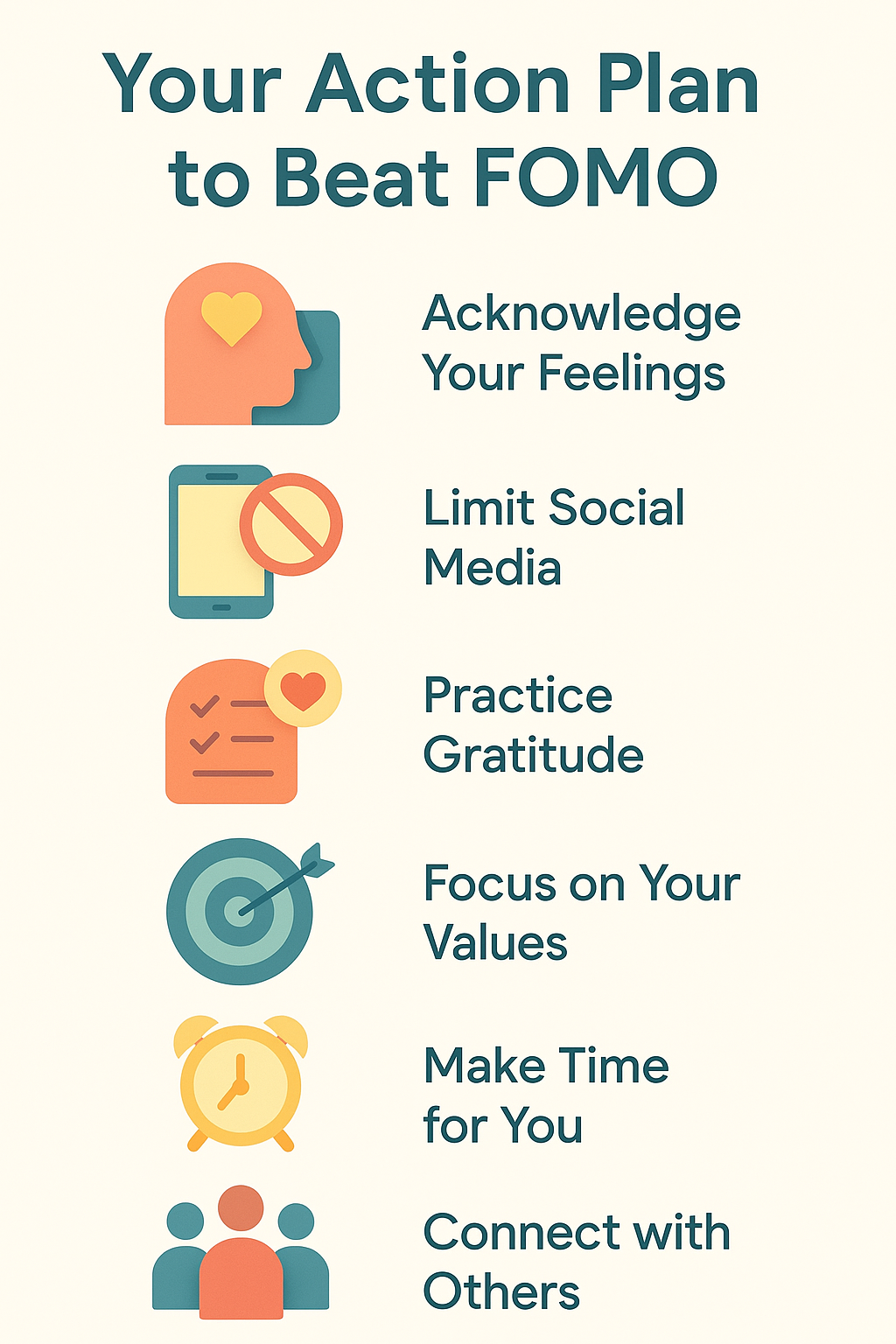Ever found yourself scrolling through Instagram on a Friday night, only to be hit with a wave of anxiety? You see stories of friends at a huge party, classmates on a scenic weekend trip, and suddenly, that all-too-familiar pang of being left out strikes.
If this sounds familiar, you’re not alone. About two-thirds of college students say they get lonely at times [1]. College is hyped as “the best time of your life,” but real life is never a perfect Instagram highlight reel. The good news? You can beat the fear of missing out (FOMO), reframe your expectations, and find genuine happiness in your college experience, both online and off.
The “Highlight Reel” vs. Your Reality
Social media platforms like Instagram, TikTok, and Snapchat are essentially highlight reels of life’s most exciting moments. As some psychologists note, people are most likely to share “peak experiences,” creating a curated stream of perfection that is almost “perfectly constructed to make viewers feel deficient” [6].
In short, comparing your behind-the-scenes to someone else’s highlight reel is a recipe for FOMO.
A staggering 56% of social media users experience FOMO [4]. With nearly 7 in 10 college students spending six or more hours a day on these platforms [5], the exposure is constant. You see the smiling tailgates, the cool club events, and the exotic spring break trips. It’s easy to feel like you’re falling behind.
Reality Check: People don’t post about the boring afternoons in the library or the nights they feel homesick. As experts from UC Davis Health state, social media is a “highlight reel, displaying the best parts of a user’s life” [7]. This creates a vicious cycle that you need to recognize to break free.
How FOMO Is Hurting Student Mental Health
Social comparison is a natural human tendency, but social media throws gasoline on the fire. Research compiled by the U.S. Surgeon General warns that “social media-induced fear of missing out” is closely linked to higher levels of depression and anxiety [3].
On U.S. campuses, where more than a third of young adults reported anxiety in 2023 [2], this digital pressure cooker makes things worse. Constantly seeing others’ curated lives can fuel feelings of inadequacy and stress. In fact, one striking study found that college students with higher FOMO are more prone to risky behaviors like heavy drinking or academic cheating [8]. Ironically, social media can also amplify loneliness. A 2024 Active Minds survey found that 64.7% of U.S. college students feel lonely on campus [1].
Time for a Mindset Shift: Your College Life is Not a Performance
Beating FOMO starts with changing your mindset. As the wellness team at Calm advises, “Be kind to yourself. It’s important to remember that nobody’s life is perfect, no matter how it appears on social media.” [9].
Start by setting realistic expectations. College is full of highs and lows. Instead of comparing, try practicing gratitude. Even better, embrace JOMO – the Joy of Missing Out. A key step is to consciously shift your mindset from FOMO to JOMO. Here’s what that looks like in practice:
| Aspect | The FOMO Mindset (Fear of Missing Out) | The JOMO Mindset (Joy of Missing Out) |
| Core Belief | “I have to be everywhere or I’ll miss out. My life is boring compared to theirs.” | “I choose what’s best for me right now. My peace and well-being are the priority.” |
| Seeing a Party Post | “Why wasn’t I invited? My night is a failure.” | “Looks fun for them! I’m happy enjoying my quiet night in. I needed this.” |
| A Quiet Night In | Feels like a sign of being unpopular or left behind. | A deliberate, recharging act of self-care that was consciously chosen. |
| Making Plans | Saying “yes” to everything out of anxiety, leading to burnout. | Choosing events you genuinely want to attend and saying “no” without guilt. |
| Social Media Use | Endless, anxious scrolling to “check” what you’re missing. | Intentional check-ins to connect with people you actually care about. |
| Overall Feeling | Anxious, resentful, stressed, and inadequate. | Calm, content, empowered, and self-assured. |
Your Action Plan to Beat FOMO
Ready to take action? Here is your expert-backed plan to build real-life happiness. Now, let’s break down each step from the action plan:

1. Acknowledge Your Feelings
When that wave of FOMO hits, don’t ignore it. Acknowledge it without judgment. Say to yourself, “I’m feeling anxious about missing out right now, and that’s okay.” Recognizing the emotion is the first step to taking away its power.
2. Limit Social Media
You don’t have to quit, but you need boundaries. Set daily time limits on apps like Instagram and TikTok. One study found that cutting use to just 30 minutes a day significantly boosts mood. Turn off non-essential notifications to regain control of your time and attention.
3. Practice Gratitude
FOMO thrives on what you lack. Gratitude shifts your focus to what you have. Each day, jot down three things you’re genuinely thankful for – a good conversation, a class you enjoyed, or even just a great cup of coffee. This simple habit retrains your brain to see the good in your own life.
4. Focus on Your Values
What truly matters to you? Is it academic success, personal growth, fitness, or creativity? When you actively pursue your own values, what others are doing on social media becomes less important. Your self-worth will come from your own actions, not from comparing yourself to others.
5. Make Time for You (JOMO)
Embrace the Joy of Missing Out. Intentionally schedule time for yourself to do things you genuinely love, even if it’s just watching a movie, reading a book, or going for a walk. Saying “no” to something that drains you to say “yes” to your own well-being is a superpower.
6. Connect with Others (Offline)
The ultimate antidote to online-fueled loneliness is real, in-person connection. Put your phone away and have a real conversation. Invite a classmate to study together, grab dinner with a friend, or join a campus club. These authentic interactions build a true sense of belonging that no amount of “likes” can replicate.
Your College Story is Waiting
College is about growth, learning, and making memories – not curating a perfect online image. When you feel FOMO creeping in, take a breath and remember: you are exactly where you need to be. Focus on what makes you happy and healthy, and you’ll find the joy of contentment taking over.
Sources
- Active Minds, New Data Emphasizes the Correlation Between Loneliness and Student Mental Health, 2024
- Active Minds, Mental Health Statistics (Young Adults), 2023
- U.S. Surgeon General’s Advisory on Social Media and Youth Mental Health, 2023
- TrustPulse, FOMO Statistics, 2023
- Scientific Reports, Social media use and associated mental health indicators among University students: a cross-sectional study, 2025
- Psychology Today, “The Comparison Trap,” November 2017
- UC Davis Health, “Social media’s impact on mental health and tips to use it safely,” May 10, 2024
- ScienceDaily, “College student FOMO and maladaptive behavior,” October 5, 2022
- Calm Blog, “How to deal with FOMO? 6 tips to help you overcome the anxiety” 2023
